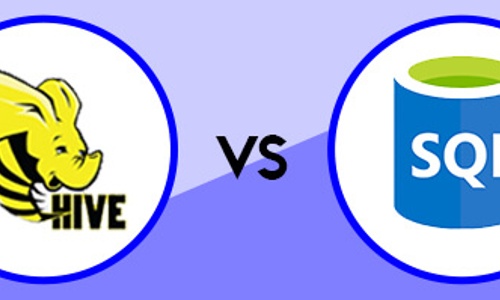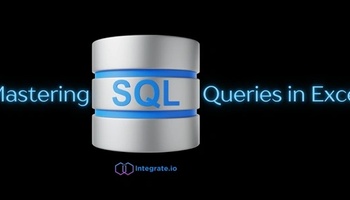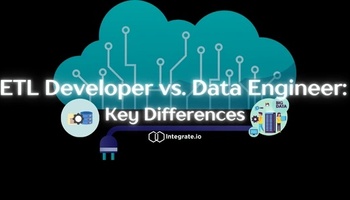Key differences between Hive and SQL:
- Architecture: Hive is a data warehouse project for data analysis; SQL is a programming language. (However, Hive performs data analysis via a programming language called HiveQL, similar to SQL.)
- Set-up: Hive is a data warehouse built on the open-source software program Hadoop.
- Data analysis: Hive handles complicated data more effectively than SQL, which suits less-complicated data sets.
- Price: Hive prices start from $12 per month, per user. SQL is open-source and free.
- Reviews: Hive has a customer review score of 4.2/5 on the website G2. Because SQL is a programming language and not a "product," it has no reviews on G2.
Big data requires powerful tools. Successful organizations query, manage and analyze thousands of data sets from hundreds of data sources. This is where tools like Hive and SQL come in. Although very different, both query and program big data.
But which tool is right for your organization? In this review, we compare Hive vs. SQL on features, prices, support, user scores, and more.
Hive vs. SQL: Features Table
|
Hive |
SQL |
|
|
User scores on G2.com |
4.2/5 |
N/A |
|
Price |
$12 per user, per month |
Free (open-source) |
|
Language |
HiveQL |
SQL |
|
Operation |
Structured data |
Regional database management |
|
Schema support |
For data insertion |
For data storage |
|
Skill level |
Intermediate |
Intermediate |
What is Hive?
Apache Hive is a data warehouse project used for data queries and analysis. Built on top of Apache Hadoop — an open-source program for handling big data — Hive performs data analysis via the query language HiveQL, which lets users structure data and generate all kinds of useful analytics.
Developed by Facebook, Hive benefits users who want to query and summarize data from spreadsheets, weblogs, CRM systems, and more. It queries data in the Hadoop Distributed File System (HDFS) and uses this system for its own storage. It also runs MapReduce jobs.
Note: Integrate.io lets you process data via Hadoop without installing any hardware or software.
What is SQL?
Structured Query Language (SQL) is a domain-specific programming language for managing data and/or processing data streams. It primarily manages data and processes real-time data held in a relational database management system. In the context of this review, SQL is like HiveQL.
Developed by Oracle, SQL is a declarative language for analytical queries. It's much newer than Hive (and HiveQL). SQL dates back over 45 years and has become ubiquitous in many IT systems.
For more information on our native SQL connectors, visit our Integrations page.
Recommended Reading: 6 Skills Data Analysts Need to Level Up
Hive and SQL Differences
- Hive writes and queries data in HDFS. SQL requires multiple reads and writes.
- Hive is better for analyzing complex data sets. SQL is better for analyzing less complicated data sets very quickly.
- SQL supports Online Transactional Processing (OLTP). Hive doesn't support OLTP.
- Hive queries can have high latency because Hive runs batch processing via Hadoop. This means an hour's wait (or more) for some queries. Updating data on Hive can take a long time too.
Recommended Reading: What is NoSQL?
Support and Training
Hive
- An online community (Apache Software Foundation)
- Resources
- Mailing lists
- Language manual
SQL
While there is no official training provided, there are various third-party training modules/support communities for SQL.
Pricing
Hive
- Plans start from $12 per user, per month.
- There's a free 14-day trial.
SQL
As an open-source platform, SQL is 100 percent free. However, SQL pricing doesn't take into account any set-up or maintenance costs you might encounter.
Recommended Reading: How Integrate.io Pricing Works
Conclusion
Hive and SQL are two tools for handling (and taming!) big data. Although these tools have similarities, they are different enough to warrant the comparison. We think Hive is better for analyzing complex data sets, while SQL works better with less-complicated data sets, and is faster when executing these tasks. Plus, it's open-source and free. Ultimately, the right tool for you depends on how you analyze big data in your organization.
Need a simple but powerful ETL solution for your Hadoop cluster but don't have a data engineering team? See if Integrate.io is a good fit for your organization. Schedule an intro call with our support team for a risk-free demo and pilot.









